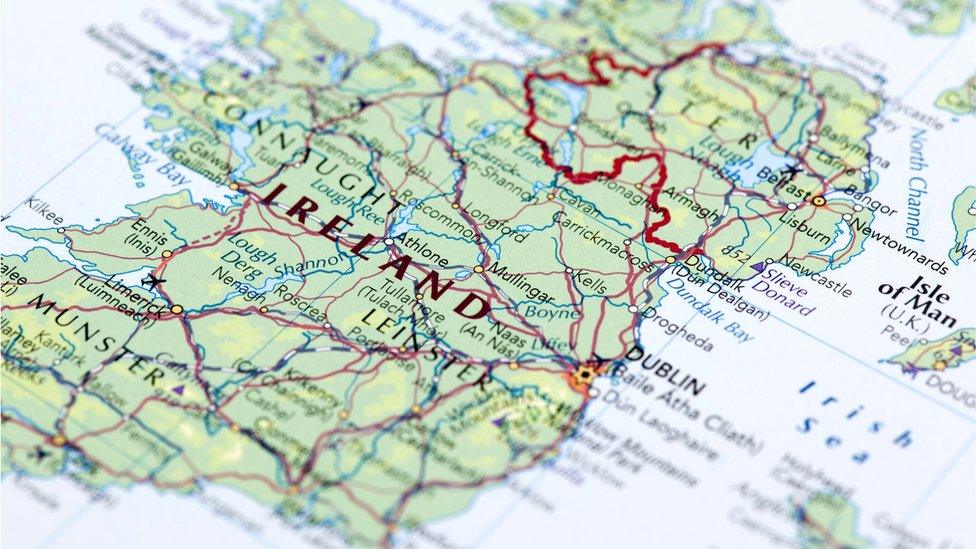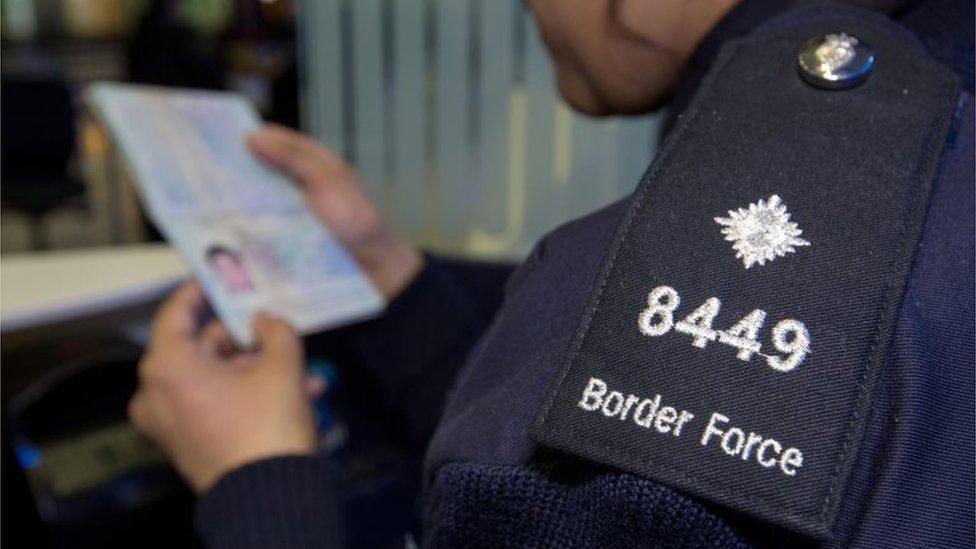Irish border travel clearance plan a 'daft' idea
- Published

The UK's border travel clearance proposal would apply to EU citizens who are neither British nor Irish nationals
Plans to require non-British and non-Irish EU citizens to apply for pre-travel clearance to cross the border into Northern Ireland have been called "daft and potentially dangerous".
Former NI Secretary Lord Murphy made the comments in the Lords on Tuesday.
The UK government first announced the proposal last year as part of its Nationality and Borders Bill, external.
Parties in Northern Ireland as well as opposition parties at Westminster have criticised the move.
The scheme was expected to come into force in 2025 but has already been described as "unworkable" on the Irish border.
On Tuesday, peers supported an amendment from former Social Democratic and Labour Party (SDLP) MP Baroness Ritchie to exempt Northern Ireland from the new rules, following a vote by 141 to 107.
But the legislation will have to return to the House of Commons where the amendment could then be overturned by MPs.
'It's not like a border anywhere else'
Lord Murphy described the government's plan as "being drawn up clearly by people who know nothing about Northern Ireland" and said it would lead to practical problems for the cross-border tourism sector.

Lord Murphy served as secretary of state for Northern Ireland from October 2002 to May 2005
"When people come here, they want to see both ends of the island, to impose this unnecessary restriction on them could jeopardise a sector already severely hit by Covid," he told peers.
"The border doesn't exist in the ordinary sense of a border - it's not like a border anywhere else.
"What's been ignored in drawing up this silly proposal is that it ignores entirely what's been agreed in the last quarter of a century under the Good Friday Agreement.
"This all risks Northern Ireland being put on the side and seen as a peripheral business.
"It will come back to bite them, and I urge the government to withdraw it."
However, the government defended its proposal as necessary to prevent any abuse of the Common Travel Area.
"This amendment (from Baroness Ritchie) will undermine the government's efforts to strengthen UK border control," said Lord Sharpe.
The Common Travel Area gives UK and Irish citizens certain reciprocal rights in each others' countries and has continued since the UK left the EU.
Last year, Immigration Minister Kevin Foster said the plans would mean requirements for a US-style waiver known as an Electronic Travel Authorisation (ETA), for people coming from the Republic of Ireland into Northern Ireland, who are not British or Irish citizens.
He said the ETA would be a pre-paid online authorisation, but since then there has been no more detail about the scheme.
Baroness Ritchie said the move would have "social and health" consequences if it went ahead.
"It appears the UK government intends this scheme to apply on the land border, of which there are about 300 crossings... it shows a total lack of understanding," she added.
Simon Hoare, chairman of the Northern Ireland Affairs Committee in Westminster, said he did not support the plan and the government should look at it again.
Related topics
- Published23 May 2021
